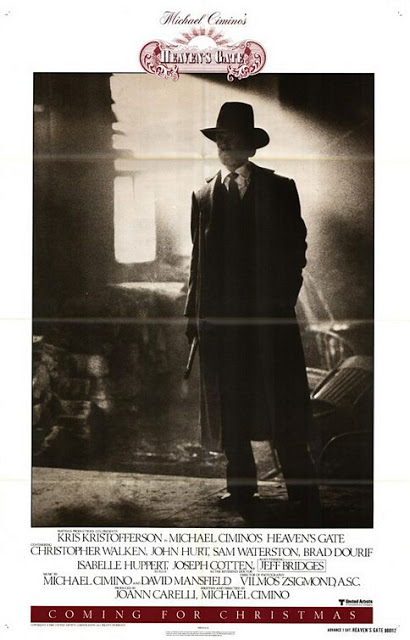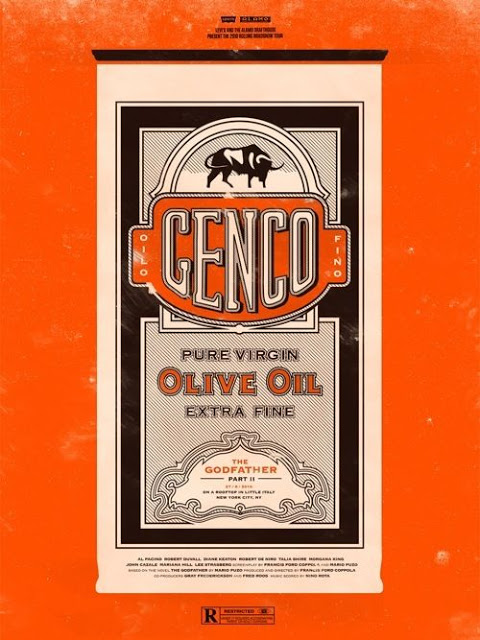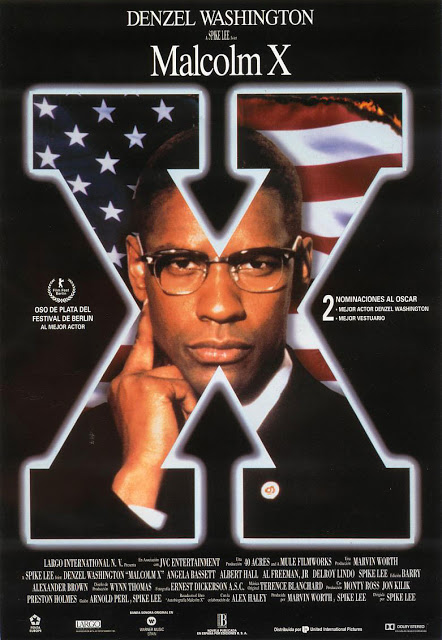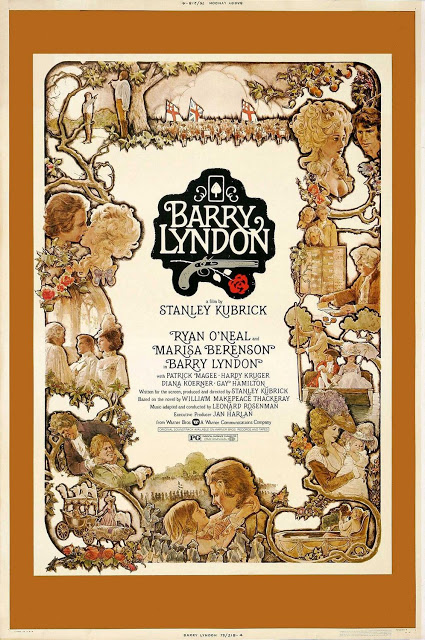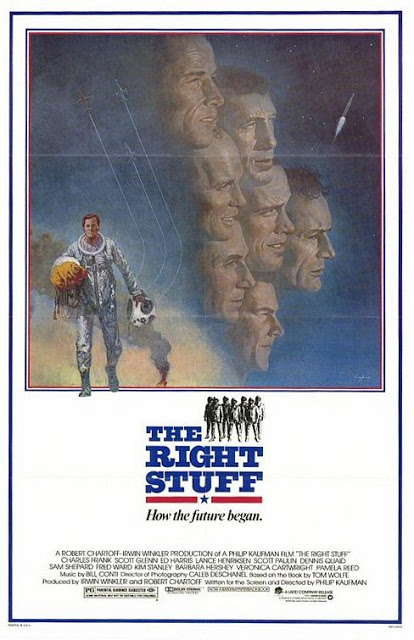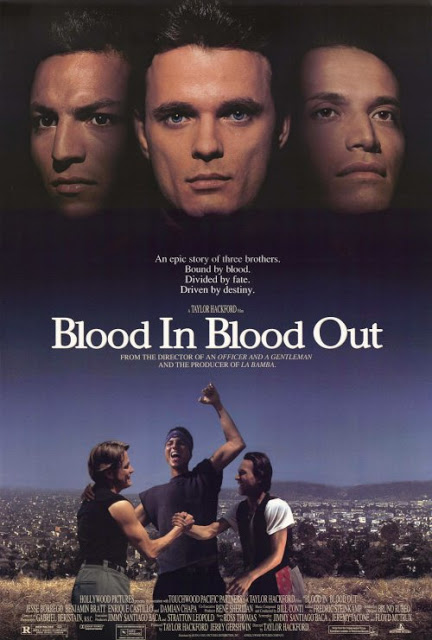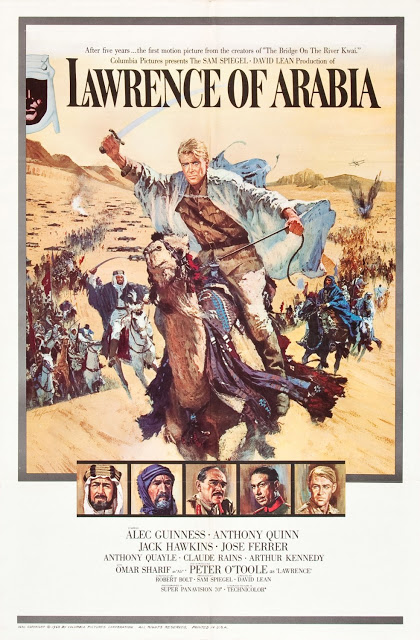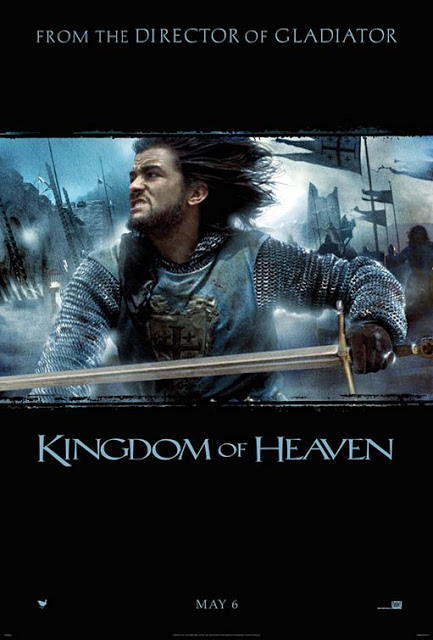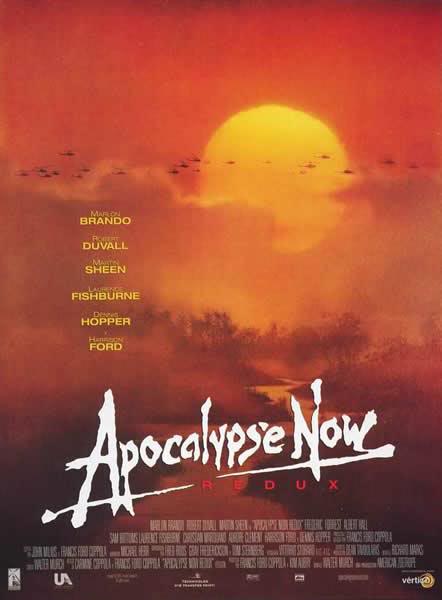The recent release of Michael Cimino’s notorious bomb Heaven’s Gate as a Criterion Collection title may raise a few eyebrows from snobs accustomed to the company’s scholarly catalogue, but it’s a welcome if lengthy invitation to revisit this misunderstood picture, and to ponder on the sub-genre of sprawling and gargantuan modern-day Hollywood films that bravely push past the three-hour mark.
With snowstorm season approaching, let’s take a look at some suggestions for marathon-movie viewing.
All of these are glorious reminders that they really don’t make ’em like they used to.
Like many ostensible debacles, this one’s not nearly as bad as its reputation.
Honest.
Hot off an Oscar victory for The Deer Hunter, director Michael Cimino spent a then-whopping, studio-killing $44 million to concoct a mournful demystification of the Old West, a full decade before such genre-twisting would become fashionable Oscar bait (Dances with Wolves, Unforgiven).
Kris Kristofferson, Christopher Walken, John Hurt, Sam Waterston and Isabelle Huppert headline this true-life saga of the 1892 Johnson County War in Wyoming, but the real stars of the film are cinematographer Vilmos Zsigmond and production designer Tambi Larsen. Zsigmond’s ethereal widescreen images and Larsen’s immense period sets are given their just due on Criterion’s crisp hi-def transfer, and if you can spare the three hours and thirty-six minutes, you just may find yourself swept away by Cimino’s rapturous vision.
The Godfather, Part II (1974)
Francis Ford Coppola’s sequel to his phenomenal hit The Godfather is much more ambitious in scope than its predecessor, spanning from 1902 to 1958.
The narrative flashes back and forth between the rise of the Corleone family and the decay of the empire, its contrasting stories of father and son intertwined into one spellbinding saga.
At three hours and twenty minutes, it’s the longest—and richest—of the trilogy.
Malcolm X (1992)
The incendiary voice of Spike Lee is an acquired taste, but he’s proven to be a far greater filmmaker than a writer: it’s no accident that his three greatest dramatic films are directed from someone else’s source material—Clockers, Inside Man and his epic biography of controversial human rights activist Malcolm X.
Lee had a hand in the screenplay, but demonstrably only a small one. Anchored by Denzel Washington’s mesmerizing performance and illuminated by Ernest Dickerson magnificent cinematography, this is Lee’s finest hour.
Actually, his finest three hours and twenty-two minutes.
Barry Lyndon (1975)
Stanley Kubrick was a perfectionist, and his films are among the most meticulous examples of technical expertise ever devoted to celluloid.
His three-hour-four-minute adaptation of William Makepeace Thackeray’s novel about an eighteenth century Irish scoundrel is a bit of a slog, but it’s one of the most gorgeous movies ever made (famously shot by natural light and candlelight courtesy of special high-speed lenses designed by NASA).
The Right Stuff (1983)
Philip Kaufman’s spry adaptation of Tom Wolfe’s saga of the early days of NASA and the Space Race is so jam-packed with tales of heroism, frailty and comedy you’ll scarcely believe it runs three hours and thirteen minutes.
Blood In, Blood Out (1993)
Often identified by its subtitled name Bound by Honor, this gripping, brutal crime saga charts the divergent lives of three Latino hooligans from East Los Angeles—two half-brothers and their bi-racial cousin.
One grows up to become a cop, one an artist/addict and the other a crime kingpin in San Quentin prison. Directed with uncompromising grit by Taylor Hackford (Devil’s Advocate, Against All Odds), the film was barely released theatrically in 1993 but has justifiably earned a following since.
The home video “director’s cut” version clocks in at three hours and ten minutes, though an original rough cut reportedly ran five-and-a-half hours.
Lawrence of Arabia (1962)
True, this classic may fall outside of my self-imposed parameter of “modern-day,” but its recent—and long-overdue—Blu-ray release warrants inclusion here.
The King of All Epics, David Lean’s masterful tale of T.E. Lawrence achieves a vast scale of mind-boggling proportions while remaining intimately focused on the hero’s tumultuous inner journey.
Including Overture and Entr’acte, this saga unspools for a mammoth three hours and thirty-six minutes, every one of them pure cinema bliss.
“Hamlet” (1996)
Kenneth Branagh’s unabridged adaptation of the Shakespeare perennial was filmed in 70MM, a rarity befitting this sumptuous retelling. Branagh’s marathon four-hour film is an admitted chore to sit through in a single viewing, but it’s a visual spectacle full of lush costumes, opulent sets and surprising cameo performances.
Kingdom of Heaven (2005)
Ridley Scott’s ambitious 12th-century epic set during the Crusades was butchered to an incomprehensible two-and-a-half hours for its failed theatrical release.
The restored three-hour-ten-minute Director’s Cut adds back character nuance and plot machinations that were so sorely missing from the shorter version. Orlando Bloom is still a bit of a bore in the lead, but he’s surrounded by a sturdy supporting cast—Liam Neeson, Jeremy Irons, Eva Green, an uncredited Edward Norton—and some typically gorgeous scenery and cinematography.
Apocalypse Now Redux (2001)
Nearly an hour of footage has been woven back into Francis Ford Coppola’s hallucinatory Vietnam-set adaptation of Joseph Conrad’s Heart of Darkness.
But more than simply padding the film with newly inserted and expanded episodes, the added material lends the film a more epic scope, now clocking in at three hours and twenty-two minutes.
A lengthy pit-stop at a French plantation detracts from the film’s momentum just as it should be hurtling towards the climax, but the restored bits throughout—especially a newly unearthed monologue by Marlon Brando as the mysterious Kurtz and a surprising encore for Robert Duvall’s loony Colonel Kilgore—are revelatory and add so much more to the film than simply extra minutes.
I’m still undecided as to which version—this Redux or the original 1979 release—is superior, but thankfully the Blu-ray edition offers BOTH cuts for fans to consider.





































































































